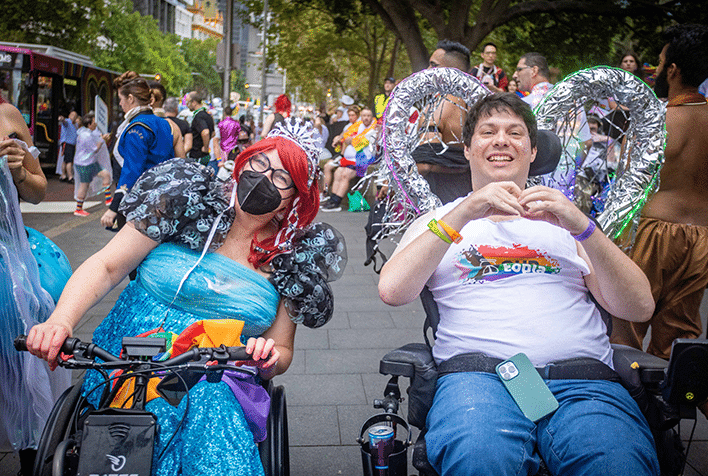
The goal is to establish an open and accepting culture and address some of the many health and societal challenges faced by LGBTQA+ individuals to help them feel safe, accepted, and empowered to embrace their unique identities.
“These issues have serious consequences for the physical and mental wellbeing, as well as the overall quality of life for LGBTQA+ individuals with disabilities,” said Dr Rosalie Power, Research Fellow and Project Lead, Translational Health Research Institute, Western Sydney University.
“Discrimination and bias against people with disabilities who identify as LGBTQA+ leads to their sexual health needs being overlooked or excluded in sexual health research, policies, and practices. As a result, there is a lack of appropriate information about sexual health, which can make accessing healthcare challenging for people with disability.”
This can result in not participating in sexual healthcare, delayed diagnosis of preventable diseases such as STIs, HIV, cervical and breast cancer, and not reporting instances of sexual assault.
“My queerness is as intricate to my identity as my disability, ” Brisbane-based disability advocate Elly Desmarchelier said.
“They are both important and neither one, alone, defines who I am. Despite this, all my life I’ve seen well-meaning people very quick to make assumptions based on my disability and ignore my sexuality completely. I hope this research can go some way to breaking down those assumptions.
“Disabled people love, desire, and have relationships just like anyone else. Our feelings and desires are valid, and we deserve acknowledgment and acceptance as sexual beings. ”
The knowledge and support of the sexual health of LGBTQA+ people in the disability sector is under-resourced and underfunded, causing multiple layers of discrimination and marginalisation. This research aims to evaluate the effectiveness of an evidence-based model of sexual healthcare for LGBTQA+ people with disability.
“Rates of adult sexual assault and child sexual abuse are disproportionately high in LGBTQA+ people with disabilities and this population face traumatic histories of segregation and extreme social marginalisation. This project involves collaboration with people with lived experience, sexual healthcare, and disability service providers. The multidisciplinary approach allows us to provide a deep understanding of the social and medical determinants of health that the community face. It is crucial that services and support people understand these issues and provide environments where everyone feels accepted and is safe, and for the healthcare system to be able to provide equitable access to comprehensive healthcare for the LGBTQA+ community. We hope the outcomes of this report will reduce fear, drive change, and provide tools, information and support to people who really need it, ” said Nadia Badawi, Chair, Cerebral Palsy Alliance Research Institute.
“For people with a disability who have identified as LGBTQA+, there are additional challenges. Whether someone has significant or mild support requirements, protective parents or carers may not always be able to, or know how to, support an active sexual lifestyle. This lack of encouragement can lead to embarrassment or judgment, further limiting access to information and essential healthcare. ”
More than 739,000 people nationwide identify as LGBTQA+ with disabilities. Many of them face societal pressures to conform, resulting in feeling ‘invisible’ and restricted in how they can express their sexuality and gender.